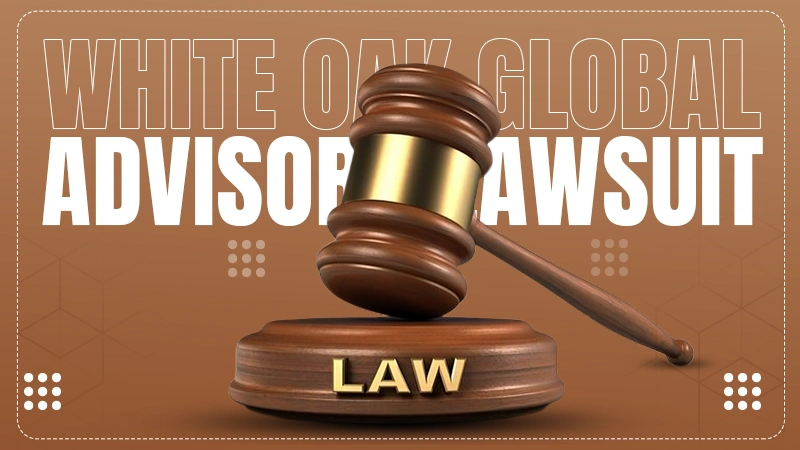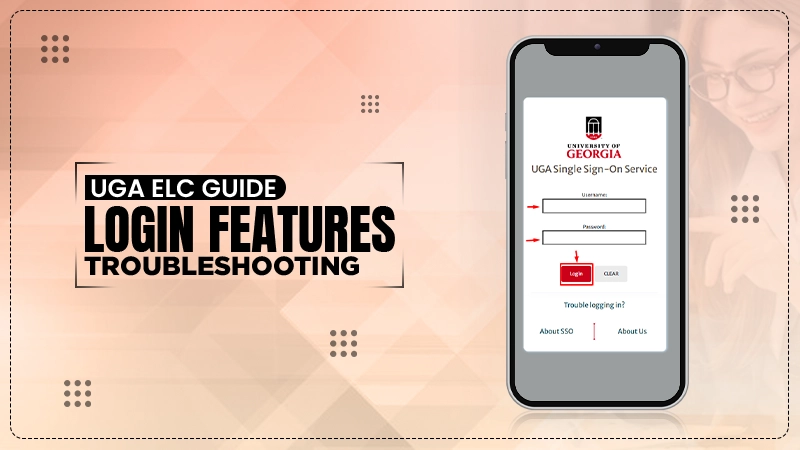The Role of Technology in Modern Compliância Management
Understanding Compliance (Compliância)
Introduction to Compliance
Compliance, or “compliância” in Portuguese, refers to the adherence to laws, regulations, guidelines, and specifications relevant to a business or organization. This concept ensures that companies operate within the legal frameworks and ethical standards set by regulatory bodies and internal policies. It is about doing the right thing, maintaining integrity, and fostering trust among stakeholders.
The importance of compliance cannot be overstated. In today’s complex regulatory environment, businesses face numerous challenges that require strict adherence to both legal and ethical standards. Compliance helps mitigate risks, avoid legal penalties, and maintain a positive reputation. By adhering to compliance standards, companies can safeguard their assets, ensure fair practices, and enhance trust among customers, partners, and stakeholders. Also, learn about PedroVazPaulo Business Consultant by reading this article.
Importance of Compliância in Business
Compliância is a cornerstone of sustainable business practices. It helps companies mitigate risks by ensuring adherence to laws and regulations, thereby avoiding legal penalties and potential lawsuits. This proactive approach to legal and regulatory requirements not only protects the company’s financial health but also its operational stability. Furthermore, compliance programs promote transparency and accountability within the organization, fostering a culture of integrity and ethical behavior among employees.
In addition to risk management, Compliância significantly enhances a company’s reputation. Businesses known for their commitment to legal and ethical standards tend to attract more customers, investors, and talented employees. A strong reputation built on compliance can lead to increased customer loyalty, better market positioning, and ultimately, higher profitability. Moreover, in an age where consumers and stakeholders are increasingly concerned about corporate responsibility, demonstrating a robust compliance framework can be a significant competitive advantage.
Key Components of Compliância
Legal Compliância
Legal Compliância involves adhering to laws and regulations that apply to the business. This includes local, state, and federal laws.
Ethical Compliância
Ethical Compliância goes beyond legal requirements to encompass moral and ethical standards. It includes principles such as honesty, integrity, and respect in business practices.
Regulatory Compliância
Regulatory Compliância pertains to following rules and regulations specific to the industry in which a business operates. This ensures that the company meets industry standards and avoids regulatory fines.
Benefits of Implementing Compliance Programs
Implementing robust compliance programs can offer numerous benefits, including:
- Risk Management: Identifying and mitigating potential risks.
- Legal Protection: Reducing the likelihood of legal issues and penalties.
- Reputation Management: Building and maintaining a trustworthy brand image.
- Operational Efficiency: Streamlining processes to meet compliance standards.
- Employee Awareness: Educating employees about legal and ethical obligations.
Challenges in Compliance Management
Managing compliance can be challenging due to:
- Complex Regulations: Navigating through numerous and often complex regulations.
- Continuous Monitoring: Keeping up with changing laws and industry standards.
- Resource Allocation: Dedicating sufficient resources to compliance efforts.
- Employee Engagement: Ensuring all employees understand and adhere to compliance policies.
Legal Compliance
Definition and Scope
Legal compliance involves adhering to all laws and regulations that govern business operations. It spans various areas, including labor, environmental, and data protection laws.
Common Legal Requirements
Labor Laws
These laws govern the relationship between employers and employees, ensuring fair treatment, minimum wage, working hours, and workplace safety.
Environmental Laws
Environmental regulations aim to protect the environment by controlling pollution, waste management, and resource conservation.
Data Protection Laws
These laws regulate the handling of personal data, ensuring privacy and security of information.
Consequences of Non-Compliance
Failure to comply with legal requirements can lead to:
- Fines and Penalties: Financial sanctions imposed by regulatory bodies.
- Legal Action: Lawsuits and legal disputes.
- Reputational Damage: Loss of trust and credibility among customers and stakeholders.
Ethical Compliance
Definition and Importance
Ethical compliance involves adhering to moral principles and values in business operations. It ensures that a company not only follows the law but also promotes fairness, transparency, and integrity.
Developing an Ethical Culture
Creating an ethical culture requires:
- Leadership Commitment: Leaders setting the tone for ethical behavior.
- Clear Policies: Establishing clear ethical guidelines and standards.
- Employee Engagement: Encouraging employees to uphold ethical values.
Ethics Training and Education
Regular training and education programs help employees understand ethical standards and how to apply them in their daily work.
Regulatory Compliance
Overview of Regulatory Compliance
Regulatory compliance ensures that businesses adhere to industry-specific regulations. It varies across different sectors and is essential for maintaining operational legality and ethical standards.
Industry-Specific Regulations
Financial Sector
The financial industry faces stringent regulations to prevent fraud, money laundering, and ensure the stability of financial systems.
Healthcare Sector
Healthcare regulations focus on patient safety, data protection, and ensuring quality care standards.
Regulatory Compliance Strategies
Effective strategies include:
- Regular Audits: Conducting internal and external audits to ensure compliance.
- Policy Updates: Regularly updating policies to reflect changes in regulations.
- Training Programs: Continuous training for employees on regulatory requirements.
Building an Effective Compliance Program
Steps to Create a Compliance Program
- Assess Risks: Identify areas of potential non-compliance.
- Develop Policies: Create clear compliance policies and procedures.
- Train Employees: Educate staff on compliance requirements.
- Monitor Compliance: Regularly review and audit compliance practices.
- Respond to Issues: Address non-compliance issues promptly.
Role of Compliance Officers
Compliance officers are responsible for overseeing compliance programs, ensuring adherence to laws, and addressing compliance breaches.
Monitoring and Auditing Compliance
Continuous monitoring and periodic audits are essential for identifying and rectifying compliance issues.
Handling Compliance Breaches
When breaches occur, it’s crucial to:
- Investigate Promptly: Determine the cause and extent of the breach.
- Take Corrective Action: Implement measures to prevent recurrence.
- Report Appropriately: Notify relevant authorities and stakeholders.
Technology and Compliance
Role of Technology in Compliance
Technology can streamline compliance processes, making it easier to monitor and enforce compliance standards.
Compliance Management Software
These tools help businesses manage compliance by automating processes, tracking compliance status, and generating reports.
-
Future Trends in Compliância Technology
Emerging technologies are playing a transformative role in compliance management, offering innovative solutions to streamline processes and enhance risk management. The following are some of the future trends in compliance technology:
- AI and Machine Learning: Artificial intelligence (AI) and machine learning (ML) are becoming increasingly prevalent in compliance management. These technologies can analyze vast amounts of data quickly and accurately, identifying patterns and trends that may indicate compliance risks. AI and ML algorithms can predict potential issues, automate routine compliance checks, and provide real-time insights into regulatory developments.
- Blockchain Technology: Blockchain provides a secure and tamper-proof way to store compliance-related data and records. By creating a decentralized and transparent ledger, blockchain can offer enhanced traceability and auditability, reducing the risk of data manipulation and fraud. This technology ensures the integrity of compliance information, facilitating more robust compliance audits.
- Cloud Computing: Cloud-based compliance management systems offer scalable and flexible solutions for businesses. These platforms can store vast amounts of compliance data, provide real-time monitoring, and facilitate collaboration among compliance teams. Additionally, cloud-based systems can be easily accessed from anywhere, making compliance management more efficient and convenient.
- Robotic Process Automation (RPA): RPA technology can automate repetitive tasks associated with compliance management, such as data entry, report generation, and document processing. By reducing manual efforts, RPA can increase efficiency and accuracy, freeing up human resources to focus on more complex compliance tasks.
- Natural Language Processing (NLP): NLP technology can help analyze and understand complex legal and regulatory language. By processing vast amounts of text data, NLP tools can extract relevant information, generate summaries, and assist compliance teams in interpreting and implementing regulatory requirements.
- Predictive Analytics: Predictive analytics tools, often powered by AI and machine learning, can forecast potential compliance risks and guide proactive measures. These tools can analyze historical compliance data, industry trends, and external factors to anticipate and mitigate risks effectively.
- IoT Compliance Management: The rise of the Internet of Things (IoT) has expanded compliance requirements in various sectors, such as manufacturing, healthcare, and logistics. Compliance management systems can integrate IoT data to monitor and ensure adherence to industry-specific regulations and standards.
- Regulatory Technology (RegTech): RegTech solutions leverage advanced technologies to streamline compliance monitoring, reporting, and management. These platforms can offer predictive analytics, automated compliance checks, and real-time alerts, enhancing overall compliance efficiency.
Global Compliance Standards
International Compliance Frameworks
Frameworks such as ISO standards provide guidelines for maintaining compliance on a global scale.
Adapting Compliance Programs Globally
Businesses operating internationally must adapt their compliance programs to meet local regulations while maintaining global standards.
Conclusion
Summary of Key Points
Compliância is essential for businesses to ensure they operate within legal and ethical boundaries. By implementing effective compliance programs, companies can manage risks, avoid legal penalties, and build a trustworthy reputation. Legal compliance involves adhering to relevant laws and regulations, while ethical compliance focuses on maintaining high moral standards. Both aspects are crucial for fostering a culture of integrity and accountability within an organization.
Moreover, regulatory compliance varies across industries, necessitating tailored approaches to meet specific requirements. Utilizing technology, such as compliance management software, can streamline processes and improve adherence. Regular audits, employee training, and clear policies are vital components of a robust compliance program. Ultimately, staying compliant not only safeguards a company’s assets but also enhances its reputation, leading to long-term success.
Final Thoughts on Compliância
Compliância is not just a regulatory obligation but a strategic asset that can drive business success. A strong compliance framework helps companies avoid legal pitfalls, reduce risks, and build a positive reputation. By fostering a culture of integrity and accountability, businesses can ensure long-term sustainability and gain a competitive edge in their industry. Compliância should be viewed as an ongoing commitment rather than a one-time task, with continuous improvement and adaptation to new regulations and standards.
Furthermore, leveraging technology can significantly enhance compliance efforts, making it easier to monitor, report, and enforce compliance standards. Compliância management software, AI, and other technological tools can streamline processes and provide valuable insights into compliance risks. As the regulatory landscape continues to evolve, businesses must stay proactive in their compliance strategies, ensuring they remain compliant and maintain the trust of their stakeholders. By prioritizing compliance, companies can navigate the complexities of the modern business environment and achieve lasting success.
FAQs
What is the purpose of a compliância program?
A compliância program aims to ensure that a business adheres to all relevant laws, regulations, and ethical standards, thereby minimizing legal risks and promoting a culture of integrity.
How can a company ensure it is compliant?
Companies can ensure compliance by implementing robust compliance programs, conducting regular audits, providing employee training, and staying updated on legal and regulatory changes.
What are the most common compliance issues companies face?
Common issues include data protection breaches, labor law violations, environmental regulation lapses, and failure to adhere to industry-specific regulations.
How does compliance affect company reputation?
Maintaining compliance positively impacts a company’s reputation by demonstrating a commitment to ethical practices, legal adherence, and customer trust.
What resources are available for compliance training?
Resources include online courses, workshops, industry seminars, compliance management software, and guidance from compliance experts and consultants.













